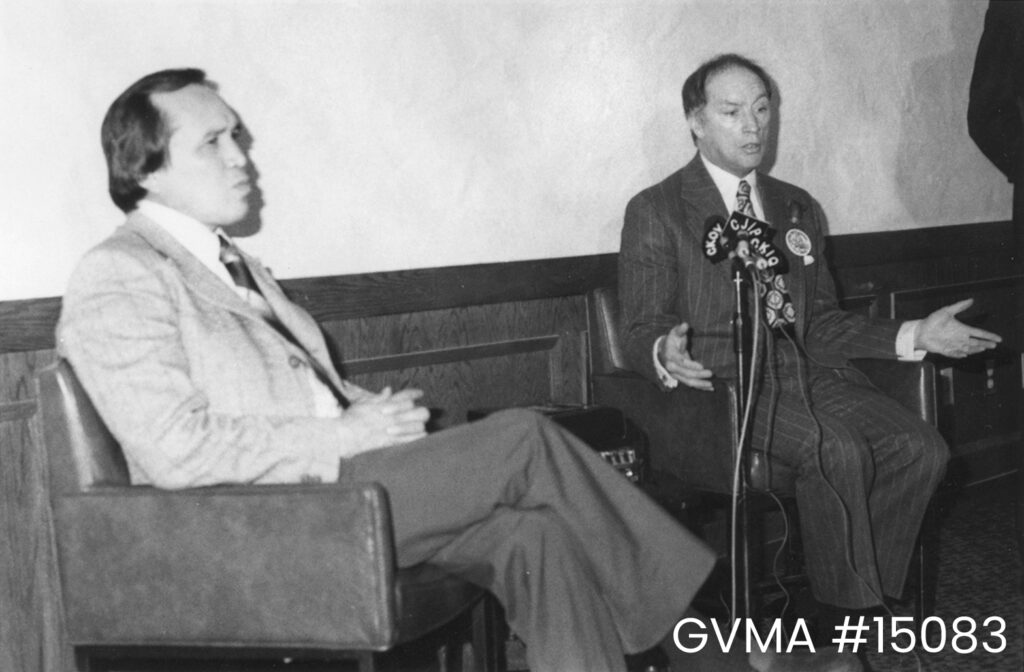
The solemn occasion of National Day for Truth and Reconciliation provides an opportunity to revisit the legacy of Leonard Marchand, a Vernon-born politician who was the first First Nations person to serve as a parliamentarian.
Marchand was born on November 16, 1933. As a child, he attended the Okanagan Day School and the Kamloops Residential School, before graduating from the University of British Columbia with a Bachelor of Science. In 1964, he completed a Master’s in Range Management at the University of Idaho.
Marchand worked as an agronomist until the mid-60s, when he began working with the North American Indian Brotherhood, a national lobby group founded in 1945. One major factor which motivated Marchand to become an activist was the denial of the Indigenous Right to Vote. Although this was granted in 1960, Marchand voted for the first time in 1958, illegally, as a form of protest. His Indigenous activism took him to Ottawa, where he was elected to the House of Commons in 1968.
Throughout his political career, Marchand frequently advanced the goals of Reconciliation. As parliamentary secretary to Jean Chrétien, who was then serving as Minister of Indian Affairs and Northern Development, he helped convince Prime Minister Pierre Trudeau to begin land settlement negotiations between the Federal Government and First Nations. Marchand later described this as the action of which he was most proud in all his career, alongside forming and chairing the Standing Senate Committee on Aboriginal Peoples.
In 1976, Marchand was appointed to Cabinet as Minister of State for Small Business. A year later, he was promoted to the position of Minister of the Environment, which he held until 1979. In 1984, Marchand was appointed to Senate, the second First Nations individual to hold this role. Marchand retired in 1998 at the age of 64 and passed away on June 3, 2016.
Leonard Marchand paved the way for other Indigenous individuals to pursue a career in politics, ensuring that their voices would remain at the forefront of national affairs, and that Reconciliation and its goals would stay in the public spotlight.
To explore more of Vernon’s history, check out our other blog posts!
Gwyneth Evans, Head of Archives

